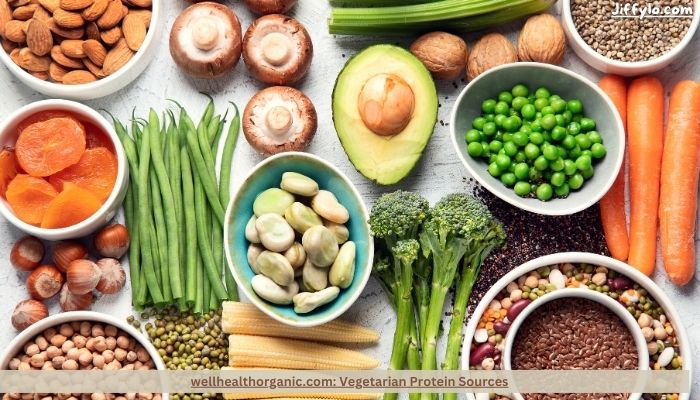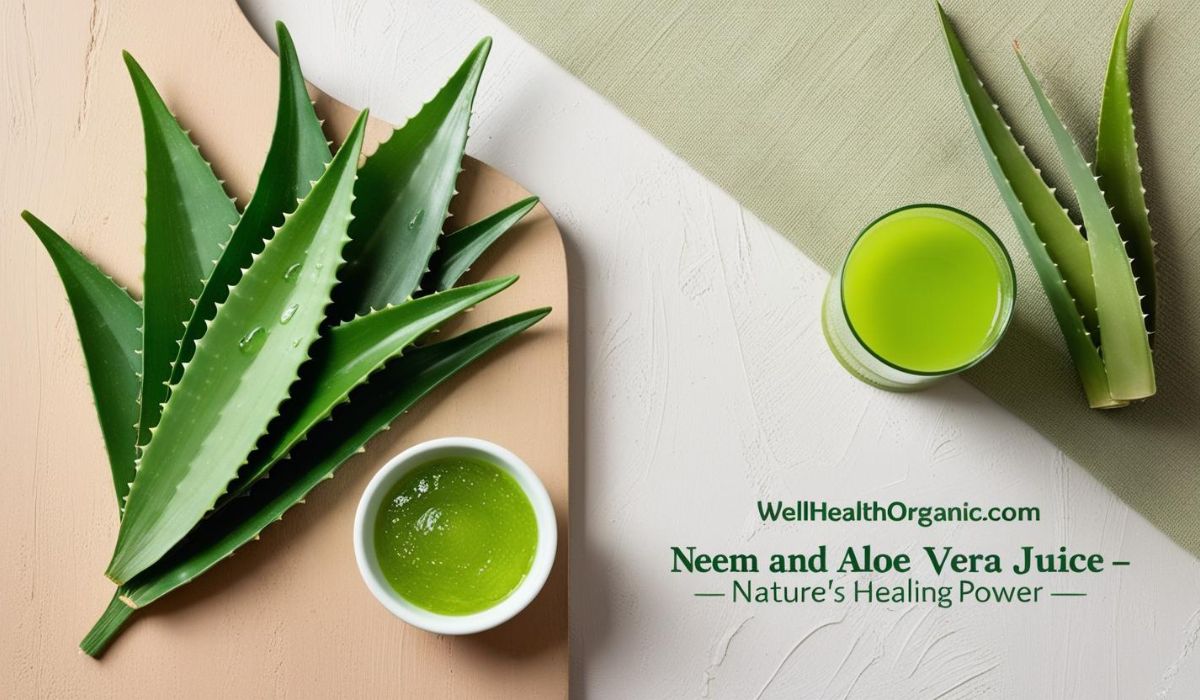
Protein is an essential macronutrient that plays a crucial role in maintaining and repairing the body’s tissues. It acts as a building block for muscles, skin, enzymes, and hormones, making it vital for overall health. While many associate protein with animal products, there are plenty of vegetarian sources that can help meet the body’s protein requirements. In this article, wellhealthorganic.com: Vegetarian Protein Sources, we’ll dive into the importance of protein, with some particular wellhealthorganic.com: Vegetarian Protein Sources, and explore a range of protein-rich foods commonly found in Indian households.
Why Do We Need this Wellhealthorganic.com: Vegetarian Protein Sources?
Wellhealthorganic.com, Protein is not just a nutrient that bodybuilders need; it’s a vital component of every cell in your body. Proteins help in repairing tissues, making enzymes and hormones, and are key to the functioning of various systems in the body. Whether you’re looking to gain muscle, lose weight, or simply maintain a balanced diet, protein plays a central role.
Wellhealthorganic.com: vegetarian protein sources are crucial for those who choose not to consume animal products, providing essential nutrients needed for overall health. While animal-based proteins are often highlighted for their completeness, wellhealthorganic.com: Vegetarian Protein Sources offer a diverse array of options that can meet all dietary needs. wellhealthorganic.com: Vegetarian Protein Sources legumes and nuts to dairy products and soy, these plant-based proteins not only support muscle growth and repair but also contribute to a balanced diet.
What Are The Effects of Protein Deficiency?
in above we discuss about wellhealthorganic.com: Vegetarian Protein Sources, now let’s see the protein deficiency can lead to several health issues, ranging from mild symptoms to severe consequences. In its early stages, protein deficiency can cause fatigue, muscle weakness, and difficulty concentrating. Over time, it can lead to more serious problems like without any proper knowledge of @wellhealthorganic.com: Vegetarian Protein Sources as well as protein deficiency:
- Muscle Atrophy: The body starts breaking down muscle tissue to meet its protein needs.
- Edema: A lack of protein may cause fluid retention in tissues, leading to swelling.
- Weakened Immunity: Without adequate protein, the immune system becomes less efficient in fighting infections.
- Hair, Skin, and Nail Issues: Protein is crucial for maintaining healthy hair, skin, and nails. Deficiency can result in hair thinning, brittle nails, and dry, flaky skin.
Read Also: Tallyman Axis: Mastering Debt Management
How Much Protein Do Indians Need?
The protein requirements of individuals vary based on factors like age, gender, activity level, and overall health. On average, a healthy adult requires about 0.8 grams of protein per kilogram of body weight. For an average Indian, this translates to about 50-60 grams of protein per day. However, athletes, pregnant women, and those recovering from illness may require more.
In India, where vegetarianism is quite common, it’s important to focus on what is wellhealthorganic.com: Vegetarian Protein Sources of quality and diversity of protein sources to ensure that all essential amino acids are consumed.
wellhealthorganic.com: Vegetarian Protein Sources-Commonly In Indian Households

Fortunately, Indian cuisine is rich in plant-based protein options. wellhealthorganic.com: Vegetarian Protein Sources Let’s explore some common vegetarian protein sources that can be found in almost every Indian household:
Lentils and Legumes
Lentils (dal) are a staple in most Indian diets. A bowl of cooked lentils can provide around 18 grams of protein. Other legumes, such as chickpeas (chana), kidney beans (rajma), and black-eyed peas (lobia), are also excellent sources of plant-based protein.
Dairy Products
Dairy is another significant source of protein for vegetarians. Milk, yogurt, paneer, and cheese offer high-quality protein along with essential vitamins and minerals like calcium.
Nuts and Seeds
Almonds, walnuts, flaxseeds, and chia seeds are packed with both protein and healthy fats. These can easily be added to salads, smoothies, or even traditional Indian dishes for a protein boost.
Read Also: InternetChicks: Future of Interactive Digital Entertainment
Importancies wellhealthorganic.com: Vegetarian Protein Sources
The Role of Protein in the Body
Protein is essential for building and repairing tissues, making enzymes and hormones, and supporting healthy immune function. It also helps in the transportation of nutrients and oxygen throughout the body, ensuring the proper functioning of all organs.
Health Benefits of Adequate Protein Intake
Consuming adequate protein helps maintain muscle mass, supports weight loss by increasing satiety, and improves bone health. It’s especially crucial for growing children, pregnant women, and older adults to prevent muscle loss and maintain overall vitality.
Importance of Diversifying Protein Sources
While there are plenty of vegetarian protein options, it’s crucial to diversify your protein sources. Each plant-based protein contains different amino acids, so by eating a variety of protein-rich foods, you ensure you’re getting a full profile of essential amino acids.
Read Also: The Rs 149 Bear Design Long-Sleeve Baby Jumpsuit
Overview of wellhealthorganic.com: Vegetarian Protein Sources

let look for wellhealthorganic.com: Vegetarian Protein Sources provide a wealth of options for those looking to maintain a balanced diet. Examples include lentils, which are rich in protein and fiber, and chickpeas, known for their versatility in dishes like hummus and stews. Beans, such as black beans and kidney beans, are also excellent sources of protein and can be used in a variety of recipes. Tofu and tempeh, both derived from soybeans, are popular in many vegetarian and vegan diets for their high protein content and ability to absorb flavors. Additionally, dairy products like Greek yogurt and cheese offer substantial protein while also providing calcium. Nuts and seeds, such as almonds, chia seeds, and hemp seeds, are not only protein-rich but also provide healthy fats and other essential nutrients.. Some of the best vegetarian protein sources include:
- Soy products like tofu and tempeh
- Whole grains such as quinoa, oats, and brown rice
- Vegetables like spinach, broccoli, and peas, which have moderate amounts of protein
Incorporating these into your daily diet can help ensure a balanced intake of all essential nutrients.
| Food Item | Protein Content (per 100g) | Calories (per 100g) | Additional Nutrients | Health Benefits |
| Lentils | 9.02g | 116 kcal | Iron, Fiber, Folate | Supports heart health, aids digestion, helps in muscle repair |
| Chickpeas | 8.86g | 164 kcal | Fiber, Manganese, Folate | Improves digestion, promotes satiety, stabilizes blood sugar levels |
| Quinoa | 14.12g | 120 kcal | Magnesium, Iron, Fiber | Gluten-free, high in antioxidants, supports metabolic health |
| Greek Yogurt | 10g | 59 kcal | Calcium, Vitamin B12, Probiotics | Supports bone health, improves gut health, aids in muscle recovery |
| Tofu | 8g | 76 kcal | Calcium, Iron, Magnesium | Lowers cholesterol, contains all essential amino acids, supports weight management |
| Edamame | 11.91g | 121 kcal | Fiber, Vitamin K, Folate | Rich in antioxidants, supports bone health, promotes cardiovascular health |
| Chia Seeds | 16.54g | 486 kcal | Omega-3 fatty acids, Fiber, Calcium | Boosts energy, supports heart health, aids in weight loss |
| Almonds | 21.15g | 579 kcal | Vitamin E, Magnesium, Fiber | Promotes heart health, supports brain function, helps in weight management |
| Hemp Seeds | 31.56g | 553 kcal | Omega-3 and Omega-6 fatty acids, Magnesium, Zinc | Supports immune health, improves skin health, provides sustained energy |
| Tempeh | 19g | 193 kcal | Calcium, Iron, Magnesium | Fermented, improves gut health, high in essential amino acids |
| Green Peas | 5.42g | 81 kcal | Fiber, Vitamin A, Vitamin C | Supports eye health, boosts immunity, aids in digestion |
| Spirulina | 57.47g | 290 kcal | Iron, B Vitamins, Omega-3 fatty acids | High antioxidant content, detoxifies heavy metals, supports brain health |
| Seitan | 25g | 370 kcal | Selenium, Iron, Calcium | High protein meat substitute, low in fat, versatile in cooking |
| Nutritional Yeast | 14g | 60 kcal | B Vitamins, Fiber, Protein | Enhances flavor, boosts energy, supports immune health |
| Pumpkin Seeds | 19g | 446 kcal | Magnesium, Zinc, Iron | Supports prostate health, high in antioxidants, promotes restful sleep |
| Cottage Cheese | 11g | 98 kcal | Calcium, Phosphorus, Selenium | Low in fat, supports muscle growth, helps in weight management |
| Black Beans | 8.86g | 132 kcal | Fiber, Folate, Potassium | Improves digestive health, supports heart health, helps regulate blood sugar |
| Peanuts | 25.8g | 567 kcal | Healthy fats, Vitamin E, Magnesium | Boosts heart health, supports brain function, helps in weight management |
| Sunflower Seeds | 20.78g | 584 kcal | Vitamin E, Magnesium, Selenium | Reduces inflammation, supports cardiovascular health, promotes skin health |
| Flaxseeds | 18.29g | 534 kcal | Omega-3 fatty acids, Fiber, Lignans | Supports digestive health, reduces cancer risk, helps regulate blood sugar |
Wellhealthorganic.com: Vegetarian Protein Sources for Weight Loss

If you’re looking to lose weight while following a vegetarian diet, it’s important to focus on low-calorie, high-protein foods. According to wellhealthorganic.com: Vegetarian Protein Sources for weight loss are recommended, including:
Low-Calorie Protein Options
Low-calorie protein sources such as lentils, chickpeas, and leafy greens provide a satisfying and nutrient-rich meal without adding unnecessary calories.
Wellhealthorganic.com: Vegetarian Protein Sources for Weight Loss
Soy products, such as tofu and soybeans, are excellent choices for those aiming to shed extra pounds. These are low in fat and rich in protein, making them ideal for a weight loss plan.
Read Also: This Blog Will Show You About The New digital Technology in Thailand
Balancing Protein with Other Nutrients
While protein is essential for weight loss, it’s equally important to balance it with fiber, healthy fats, and complex carbohydrates. A well-rounded diet that incorporates all these nutrients will promote better digestion, maintain muscle mass, and aid in weight loss.
Conclusion
Protein is undeniably one of the most important nutrients in our diet, and for vegetarians, it’s crucial to know where to find it. By diversifying your protein sources and incorporating foods like lentils, dairy, nuts, and soy products into your daily meals, you can easily meet your protein needs. Websites like wellhealthorganic.com offer a wealth of information on how to choose the best vegetarian protein sources, especially for those looking to lose weight. Remember, a balanced and protein-rich diet is key to staying healthy and energized.
FAQs
What are the best vegetarian protein sources for weight loss?
Lentils, chickpeas, tofu, and low-fat dairy products are great for weight loss due to their high protein and low-calorie content.
How much protein is recommended daily for vegetarians?
A healthy adult requires approximately 0.8 grams of protein per kilogram of body weight. This can vary depending on lifestyle and activity levels.
Can vegetarians meet their protein needs without supplements?
Yes, by consuming a variety of protein-rich plant-based foods like lentils, nuts, and soy, vegetarians can meet their protein needs without supplements.
What are the signs of protein deficiency?
Symptoms include fatigue, muscle weakness, hair thinning, and frequent infections.
How can I increase protein in my vegetarian diet?
Incorporate more lentils, dairy, tofu, and nuts into your meals, and consider adding plant-based protein powders to smoothies or shakes.






